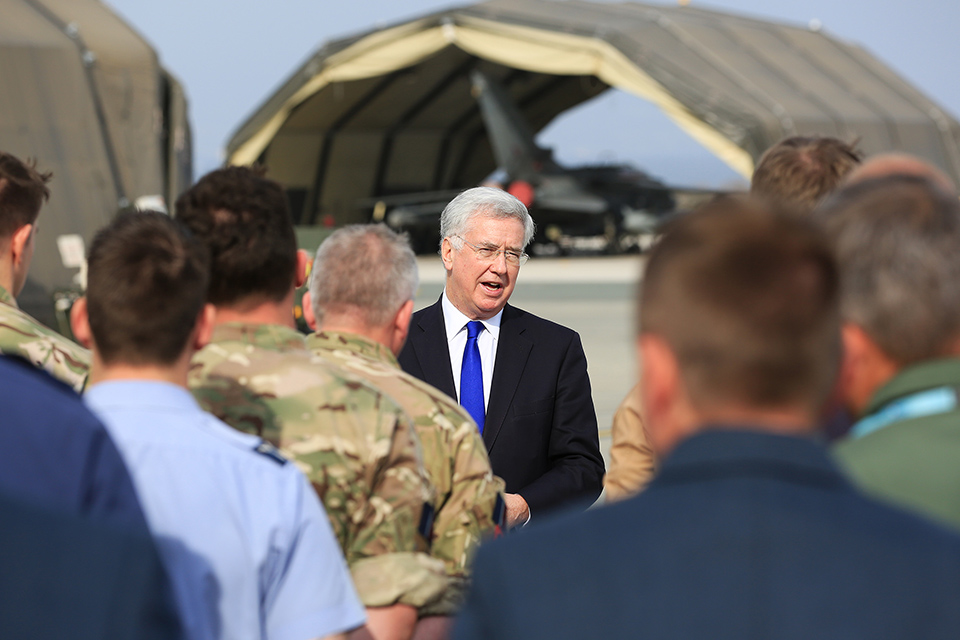News story: Britain, coalition and Iraqi forces to maintain momentum in campaign against Daesh, Defence Secretary says
Speaking in Iraq, where local Iraqi and Coalition forces recently scored a major victory in the fight against Daesh in eastern Mosul, Sir Michael welcomed the progress made in defeating Daesh in Iraq.
Sir Michael saw how Britain’s commitment to training Iraqi forces, which was stepped up last year is having an effect in the fight against Daesh. Numbers of Iraqi Security Forces trained by UK and Coalition personnel has increased threefold since October 2016, with around 3,000 Iraqi forces now being trained every month, 10,000 troops have been trained since the end of October 2016, increasing the Iraqi force’s skills and ability to defeat Daesh.
With operations to clear the western approaches to Mosul already underway, Sir Michael met with the Prime Minister, President and Defence Minister of Iraq, and the Prime Minister and other representatives of the Kurdish Regional Government of Iraq, to take review campaign progress and planning
During his visit, Sir Michael also met with UK personnel training Iraqi security forces. Britain leads the Coalition’s training programme in Iraq, and so far has helped to train nearly 40,000 troops. The training in countering improvised explosive devices (IEDs) is proving to be vital, as Daesh have booby trapped many parts of eastern Mosul during its occupation. Iraqi forces have been using their training to dispose of these crude devices, allowing their forces to advance and civilians to safely return to their homes. This training will also prove essential when forces move into the heavily mined and densely populated neighbourhoods of western Mosul.
The liberation of eastern Mosul marked a major victory for Iraqi forces, who Sir Michael praised for their patient and deliberate operation, taking care to minimise the risk to civilians. The RAF also played an important role in the Iraqi victory, providing sustained close air support to Iraqi troops. RAF Reaper aircraft played a particularly vital role, delivering precision attacks on Daesh extremists engaged in street fighting, while also using its advanced sensors to alert Iraqi ground forces to the presence of civilians.
Residents in eastern Mosul are already returning to their homes, with over 29,000 having done so in recent weeks. The liberation has also enabled more than 23,000 children to return to school and continue their education.
Defence Secretary Sir Michael Fallon said:
Iraqi forces, supported by Britain and the Coalition, have made strong progress in the fight against Daesh. We’re keeping up the momentum with operations to liberate western Mosul due to start shortly.
This will be a more complex fight in a densely populated urban environment. Britain will continue playing its part providing precision strikes, vital intelligence, and training Iraqi forces to deal with explosive devices planted by Daesh.
Sir Michael also announced that Britain will send a UK military officer to help lead NATO’s newly established training mission in Iraq, from July this year. The new NATO training and capacity building team will help the Iraqis in dealing with the threats they face, including to counter Daesh improvised explosive devices. The UK has already contributed £1 million to help establish NATO’s presence in Baghdad, which will provide expert advice on defence issues to the Iraqi Government.
